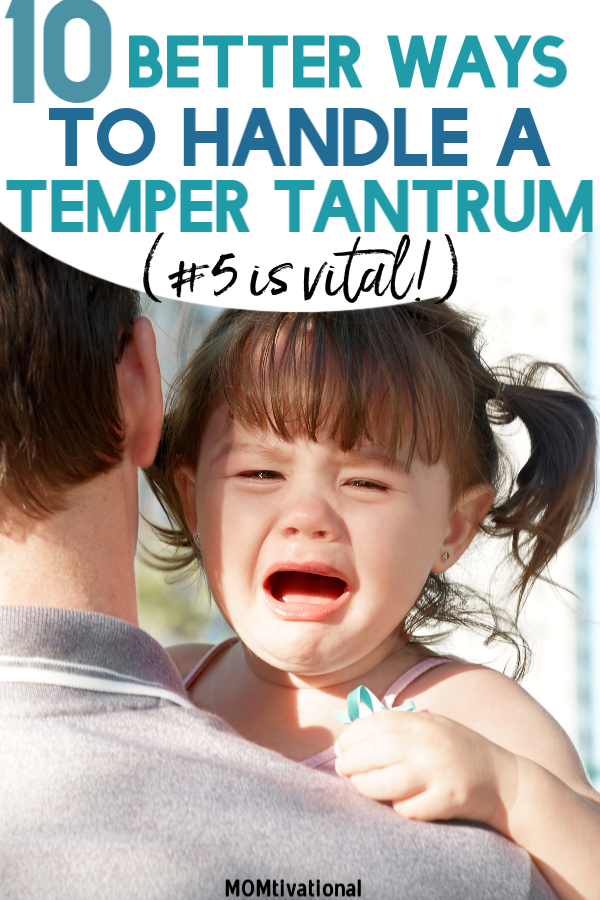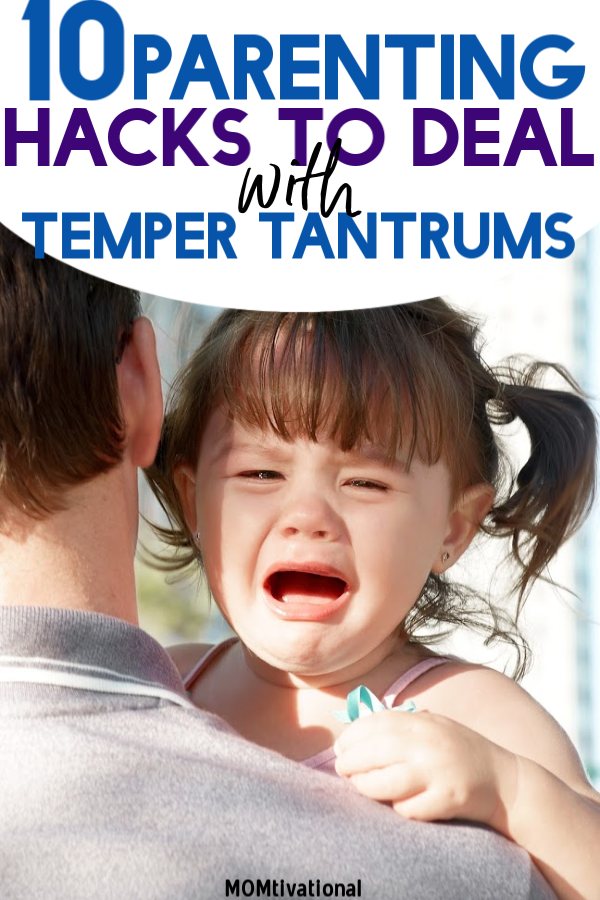This post is all about learning how to handle a toddlers temper tantrums the best way possible, so they occur less (or perhaps not at all)
Temper Tantrums. The Terrible Twos. It’s inevitable – we all know that all children go through this stage. However, some experience it a bit more dramatic than the others.
Even if that is so, we need to somehow tame and handle our children’s tantrums. No – this doesn’t involve you screaming at them for the third time. It’s an unhealthy practice and just doesn’t work. Plus being a ‘mean mommy’ isn’t fun or healthy for anyone!
But what are the ways on how I can handle my kid’s tantrums? But first, do you really know what tantrums are? Have you experienced it with your children?
Before we can solve a problem, we first have to understand why they occur in the first place….
What are tantrums?
Tantrums aren’t just about your child crying in agony because they did not get what they want. Tantrums come in all forms and in all sizes. Usually, tantrums involve explosions of anger, unpleasant behavior, and frustration in everything they do.
In other words, it’s when your kid goes through his or her “meltdown.” It’s normal until you see them breaking things, throwing things at other people – you know how it goes.
Are Tantrums Normal? What Are Temper Tantrums a Sign Of?
Don’t worry, tantrums are normal in children who are aged 1 to 3 years old. Well, the culprit for this is that your kid is starting to get a bit emotional with a couple of things. And since they’re not well-versed in speaking yet, they go at it with their behavior – through their emotions.
It is a completely normal part of childhood development.
Basically, tantrums are one way that children express their feelings. Because they cannot express these through speech, they throw tantrums to let older people know what they want. There are various feelings that they express through tantrums:
- Stress
- Hunger
- Strong Emotion
- Overstimulation
These are just some of the feelings that manifest into tantrums because children don’t have the ability to speak outright about it.
In order to better deal with tantrums we have to put or detective cap on nd try to understand what exactly our baby is trying to tell us.
Remember, your abby won’t throw a tantrum unless something is ‘wrong.’
You May Also Like: 6 Ways To Prevent Sibling Jealousy With A Newborn
Best Ways To Handle A Toddlers Temper Tantrum
Try Offering Food
Most of the time, the reason why your kid is throwing that tantrum is because they’re hungry. Don’t panic when you experience it – just relax and offer them food.
If they’re hungry, they’ll most likely stop the tantrum and take the food you’ve given them. Food is a psychological thing that can stop and turn people’s emotions around, even kids.
If that’s not the reason, however, they will continue to cry and scream. Don’t lose it when they do – take a deep breath and try to find out what they want.
Give Them A Big Hug
Dallas-based clinical Psychologist Ray Levy says that a hug might be the last thing a child wants when they’re throwing tantrums, but it can really help in settling them down. But on a side note, don’t straightforward tell them that you’re going to hug them – surprises are better, Levy says.
And what he meant by hug is to give them a huge, cuddly, and loving hug. Maybe all they need is a place or a person where they’re comfortable in letting those emotions out.
Give Them Space
Just like us adults, children need space, too!
Sometimes we want to coddle and ‘make everything right,’ but our children are little people who need to feel their emotions.
If your child needs to let his or her anger out, let them! Similar to a regular burst of frustration, no word or thing can calm us down. Maybe all your child needs is a little space.
Of course, just make sure that his or her tantrums won’t hurt her physically. Even if you’re giving them space, watch over them to see how they’re going with the space you gave them.
Communication is Key
Unlike adults, we can easily tell people what we want. That’s the difference with toddlers, – you won’t know what they want because they don’t know how to say it to you.
Some experienced moms and doctors suggest that you create some sort of a sign language with your kid.
Practice this with them when they’re calmed down so that when they get to that boiling point, they’d know how to tell you why they’re mad.
Sign languages like pointing things, expression of gestures, and syllables usually work. With a little bit of practice and experience, you’ll know what your toddlers are saying when they’re throwing a tantrum.
Speak Softer
Your child would want to engage in loudness with you and when you cope, their volume will increase more and more. In the event that your child throws a tantrum in a public place, try offering the option of sitting down with you to talk; take her outside where there’s fresh air.
Some tantrums are a result of an uncontrollable child. So, learning how to control them in a calm and serene manner can change your child’s mood. Speak softer when you’re trying to speak to them and they’re yelling. When learning how to handle a toddlers temper tantrums, avoid being mad at them as it will just escalate the situation further.
Trying to out-scream your child will only worsen the situation.
Misdirect Them With Other Things
One thing parents often forget about is that they can distract their children with other things. Because we can’t get over the fact that our kid is throwing tantrums, we often forget that we can divert their attention to something else.
You can try and fill a bag or your purse with candies, toys, books, snacks, whatever your kid wants and likes. Try that when they throw a tantrum, offer them a toy and see how they’d react. If a toy won’t suffice it, try giving them a snack or a candy.
Sometimes we feel like a ‘bad parent’ for offering a toy during a tantrum. But you aren’t rewarding the bad behavior, you’re taking advantage of the child’s short attention span.
If they’re throwing a tantrum because they want a certain toy or activity, don’t give them the toy they want so they can learn to better deal with frustration, but offer them something else. You’re diverting their attention without rewarding the behavior.
Even changing the environment can be helpful. Go outside or take a walk with them.
Offer Incentives
Your children need to know that they can get “something” out of not throwing a tantrum. Allow your child to recognize that you’re willing to give them something in return if they behave.
However, this shouldn’t always be the case because your kid might use their tantrums to get what they want. And if you don’t have what they want, they won’t stop throwing their fits. Let these incentives be something that you can bank on when the worst comes.
Take Charge, But Keep Calm
When your child gets used to the incentive-system, they might use it to get what they want.
If this happens, try explaining to them that they cannot get something they want just by throwing a tantrum. If your child wants something that you can give, it’s your call.
When you decide to take charge, though, make sure that you don’t spank them or shout at them – that will most likely make things worse.
Try to calmly tell them that you’re the one in charge and that they should follow you because you’re his or her parents.
Make Them Feel Heard
Children are children and they’ll throw tantrums. It’s a completely normal thing for a child who cannot express their feelings and emotions yet.
The important thing is to remember that tantrums are going to happen no matter what.
More than anything, your child wants to feel heard. Crouch down on their level and try to understand what they’re going through.
We can’t control the way our children eat, but we can allow them to feel heard and understood.
Stay Positive
No matter how bad the tantrum can get, it’s important to stay as positive as possible.
it’s normal to get frustrated and angry when our child is throwing what appears to be the fourth temper tantrum this week, but the best thing we can do is model the behavior we want them to adopt.
Yelling, screaming, and time outs typically don’t work with tantrums, in fact it’s like throwing gas on a fire. Try to remain positive, acknowledge their feelings, and remain firm.
If you said ‘no’ to something, and the tantrum occurs, stay positive and happy but remain firm in your decision and don’t give in.
Don’t forget to pin, like, and share!

